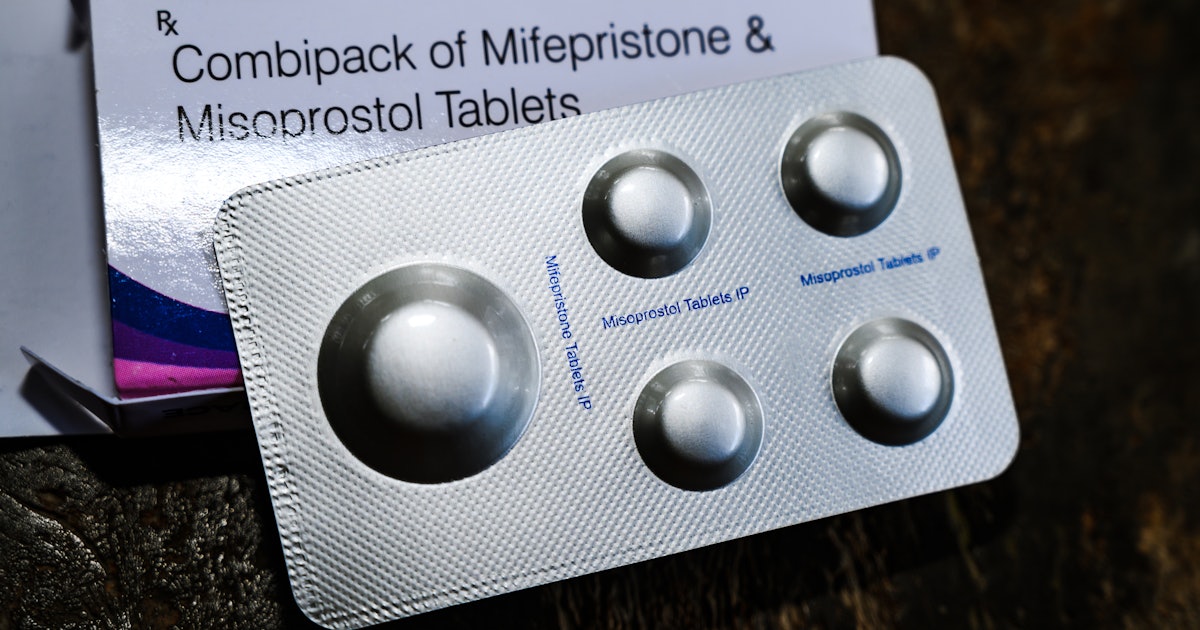Starting October 1, Louisiana will reclassify two drugs commonly referred to collectively as the “abortion pill” – mifepristone and misoprostol – as Schedule IV hazardous controlled substances. Obstetricians in the state are sounding the alarm, saying it will create barriers to delivery room care.
Mifepristone is used together with misoprostol to terminate pregnancy. Mifepristone (approved by the U.S. Food and Drug Administration in 2000) was first used to block progesterone, which helps continue pregnancy, followed by misoprostol (approved in 1988), which causes cramping and bleeding and Empty the uterus. While misoprostol alone has been shown to be effective in terminating pregnancies, doctors agree that the combination of these drugs is the “gold standard” of chemical abortion care.
But the ruling affects more than just abortion rights. Both mifepristone and misoprostol have multiple uses. Mifepristone is used in the management of miscarriage, cervical preparation late in the second trimester, and in the management of the second and third trimester when the fetus dies before birth. Misoprostol is even more widely used: in fact, it is included on the World Health Organization (WHO) Model List of Essential Medicines. This medication is mainly used to prevent and treat patients who are at risk of ulcers. However, in obstetric care, misoprostol is used to induce labor, cervical ripening (useful before certain surgical procedures), medical management of miscarriage, and treatment of postpartum hemorrhage. It’s that last use that Louisiana health care providers worry about.
Misoprostol is commonly used in delivery rooms to control uncontrolled postpartum bleeding, according to an NPR report. In fact, this medication is often stored in “hemorrhage carts” in labor and delivery wards, or even in nurse practitioners’ pockets, so that it can be administered immediately if necessary. But now, as a Schedule IV drug, it must be locked away, possibly in a hospital pharmacy or other designated location. They worry this could lead to worse outcomes for patients because every second counts when bleeding.
The move is part of SB276. In addition to reclassifying the drugs, the law also imposes harsher penalties on anyone found guilty of committing or attempting to commit the “criminal act of fraudulently forcing an abortion.” This essentially refers to someone trying to have an abortion without someone else’s knowledge or consent, essentially by secretly giving them the abortion pill. The bill is also known as the Katherine and Josephine Herring Act, named after a Texas woman (Catherine) whose husband tried to end her life by sneaking misoprostol into her drinks pregnancy. (Her daughter Josephine survived the attempt.) But there is no evidence that such crimes are widespread, and there have been no records of them in Louisiana in recent years, according to the Associated Press.
Going forward, anyone who knowingly possesses mifepristone or misoprostol for any purpose without a valid prescription could face a $5,000 fine and up to five years in prison. Notably, the law does not apply to pregnant women who obtain the drug for their own purposes, even if they do not have a prescription. Under Louisiana abortion law, abortion explorer Not criminalized but having an abortion provider Face fines, jail time and the loss of your medical license.
Louisiana effectively bans abortion and is one of four states that actually bans abortion on a constitutional level. Rape is no exception. The state currently ranks fifth in the country for both infant and maternal mortality rates. The March of Dimes annual report card gave it an F.




